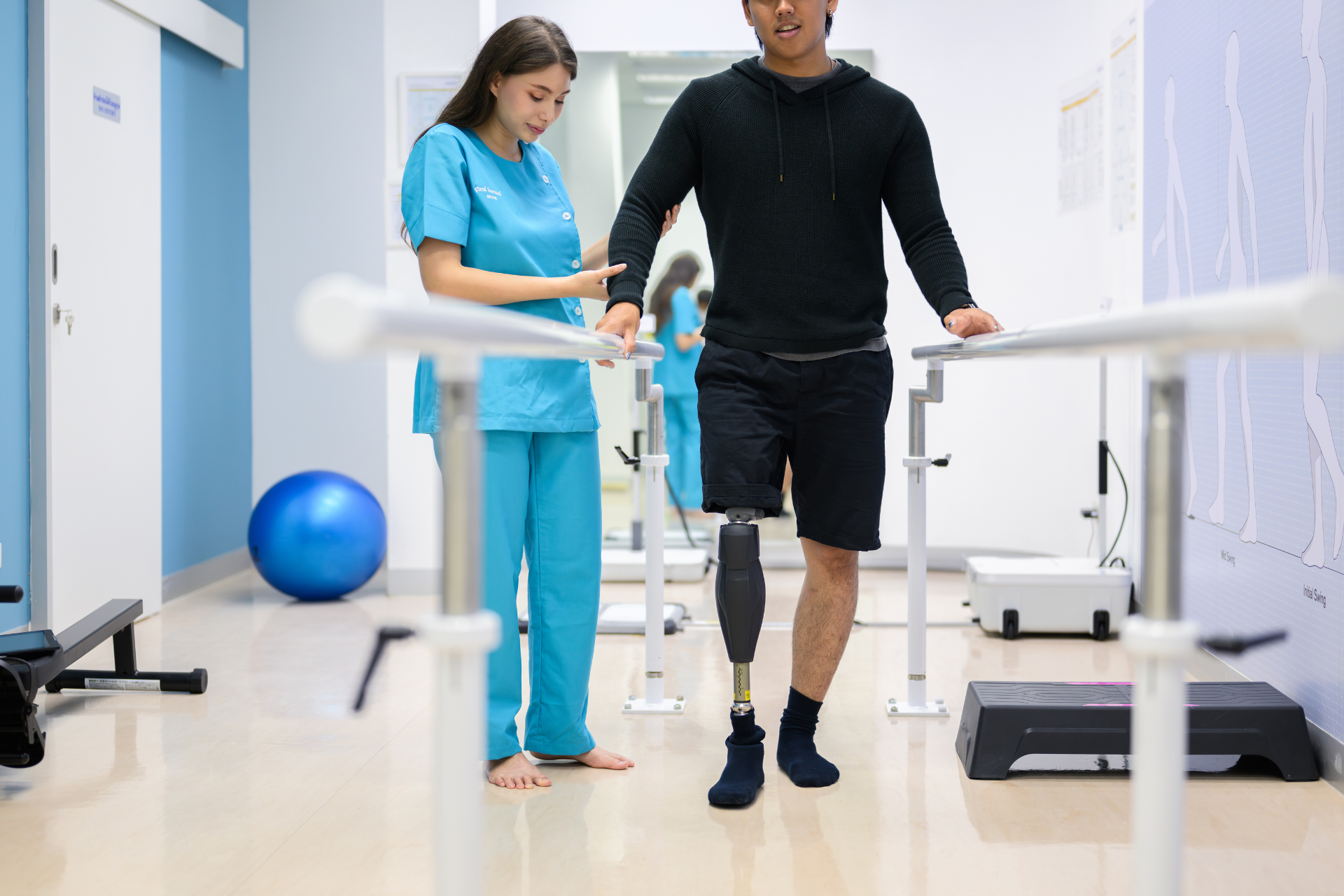
Post-Operative Rehabilitation 101
Surgery is a major event, but it doesn’t end in the operating room. Post-surgery therapy is an important step that helps you recover well and get back to your normal activities. At Rutherford Physiotherapy in Edmonton, we recognize the significance of organized rehabilitation following surgery, providing detailed programs customized to meet your specific needs. To provide the best possible outcomes for patients, this blog will analyze many facets of post-operative rehabilitation and provide advice on how to accomplish them.
Post-Operative Rehabilitation: Why Is It Important?
Post-surgery therapy includes various treatments to help people heal after surgery. These plans are designed to improve movement, reduce pain, build power, and avoid complications. Regardless of whether you have undergone orthopedic, cardiac, or neurological surgery, rehabilitation following the procedure is crucial for the following:
- Promote recovery and enhance tissue regeneration.
- Reduce stiffness and muscle atrophy.
- Reduce the likelihood of complications, including blood clots or infections.
- Enhance functional capabilities for everyday tasks.
Without proper therapy, healing can take longer, and the chances of fully recovering could decrease.
What Are The Typical Goals Of Post-Operative Rehabilitation?
Although each rehabilitation plan is distinctive, the following are the common goals of post-operative rehabilitation:
- Pain Management: Alleviating discomfort through manual therapy, different techniques, and structured exercises.
- Restoring Mobility: Restoring the range of motion in the impacted area.
- Developing Resilience: Restoring weakened muscles to facilitate normal function.
- Improving Performance: Supporting patients in returning to their daily activities and interests.
- Mitigating Complications: Promoting circulation and mobility to prevent post-surgical complications such as blood clots.
When it comes to accomplishing these objectives, collaboration between the patient and the physiotherapy staff is very necessary.
What Types Of Surgery Require Post-Operative Rehabilitation?
A structured rehabilitation program is advantageous for numerous surgical procedures. Typical surgical procedures that necessitate post-operative rehabilitation include:
- Orthopedic Surgeries: Knee replacements, hip replacements, shoulder repairs, and ACL reconstruction procedures.
- Spinal Surgeries: Discectomy, laminectomy, and spinal fusion procedures.
- Cardiac Surgeries: bypass surgery, heart transplants, and valve repairs.
- Neurosurgery: Procedures for treating strokes and severe brain injuries.
- Abdominal Surgeries: Repairs of hernias and other significant abdominal surgeries.
If you are uncertain about the necessity of post-operative rehabilitation, it is advisable to consult with our physiotherapist or contact Rutherford Physiotherapy for professional guidance.
What To Expect During Post-Operative Rehabilitation?
Right after surgery, patients will start a carefully planned therapy program to help them heal. Here’s what to expect:
- Preliminary Evaluation: A physiotherapist will undertake a comprehensive evaluation to learn more about your medical background, the kind of operation you had, and your specific rehabilitation goals.
- Customized Strategy: A personalized rehabilitation regimen that includes workouts, treatments, and routines.
- Therapeutic Exercises: These may include mobility and stability-boosting stretching, strengthening, and balancing exercises.
- Manual Therapy: Practical methods to alleviate discomfort and enhance joint performance.
- Health Education and Counselling: Guidance on posture, body mechanics, and activities to refrain from during the recovery process.
- Progress Monitoring: Consistent evaluations to monitor advancement and modify the technique as necessary.
When To Start Post-Operative Recovery
When you can start, your recovery depends on the type of surgery you had and what your doctor advises. In most cases, the treatment will begin immediately after the operation, while others may need a waiting period. Consult with both your surgeon and a physiotherapist to determine the best time to begin your post-operative rehabilitation.
What Is The Typical Duration Of Post-Operative Rehabilitation?
The length of post-operative rehabilitation is influenced by the specific type of surgery, the patient’s overall health condition, and the complicated procedures involved in the recovery process. Rehabilitation after surgery for minor procedures may extend over several weeks. For more complex procedures, including hip replacements or spinal operations, the recuperation time may last for several months.
At Rutherford Physiotherapy in Edmonton, we focus on personal care, making sure your therapy plan matches your specific goals and speed of recovery. Regular check-ins help us customize your program to fit your needs.
What Are Effective Strategies For Managing Pain During Rehabilitation?
It is very necessary to have an efficient pain management system in place throughout the post-op rehabilitation phase. Here are some ways to make sure you are comfortable:
- Follow Your Medication Schedule: Administer the prescribed pain relievers according to your doctor’s instructions.
- Incorporate Rest Periods. Ensure a proper balance between activity and sufficient rest to prevent overexertion.
- Cold or Heat Therapy: Heating pads or cold packs can help reduce pain and swelling.
- Establish Relaxation Techniques: Engaging in breathing exercises and mindfulness practices can assist in alleviating discomfort.
- Contact Your Therapist: Any discomfort issues should be shared so that your program can be modified.
Common Challenges Of Rehabilitation And How To Overcome Them
While recuperating from surgery might be difficult, maintaining your motivation is essential to reaching your objectives. The following are a number of common obstacles, as well as strategies for overcoming them.
- Discomfort and Pain: Experiencing some discomfort is a normal part of the recovery process. If you plan to change your workouts or use pain management strategies, you should consult with your therapist.
- Lack of Motivation: The recovery process may seem slow. To keep yourself motivated, set reasonable objectives and acknowledge your small achievements.
- Concerns Regarding Reinjury: Develop confidence gradually by following your therapist’s instructions and avoiding excessive stress.
Your Journey To A Healthy Lifestyle
Therapy is necessary for complete healing after surgery. It helps you heal properly, regain function, and hope to return to your daily activities. At Rutherford Physiotherapy in Edmonton, we aim to provide you with the best results through personalized support and care.
If you are preparing for surgery or are currently in the recovery phase, please contact Rutherford Physiotherapy in Edmonton to discover how we can assist you in managing the post-surgery rehabilitation process and returning to your normal lifestyle.

